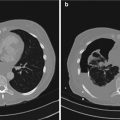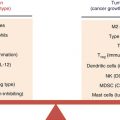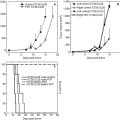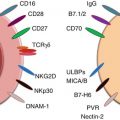© Springer-Verlag Berlin Heidelberg 2015
Nima Rezaei (ed.)Cancer Immunology10.1007/978-3-662-44946-2_2626. Psychoneuroendocrinoimmunotherapy of Cancer
(1)
Italian Association of Integrative Medicine (AIMI), Milan, 21124, Italy
Keywords
Anticancer immunityPsychoneuroimmunomodulationMelatoninCytokines26.1 Introduction
Currently on the basis of the most recent discoveries showing evidence of a great variety of cancer-related alterations of immune and neuroendocrine functions, almost all oncologists are in agreement to consider human tumors as a systemic disease rather than a simple locoregional pathology, even though tumor mass is still a locally limited disease [1]. In that case, from a philosophic point of view, the question is, what is a tumor, as well as its cause or the consequent effect on the pathological immunobiological status of this disease which is considered a systemic disease from the beginning? In other words, is it cancer dissemination which generates a systemic disease or a previous existence of a systemic psychoneuroimmune disorder, which may contribute to determine the neoplastic disease by altering the physiological immune mechanisms responsible for the natural biological resistance against cancer onset by blocking the evolution from the single transformed cell into a clinically evident tumor mass? Obviously, because of the concomitant evidence of tumor mass and cancer-related immunobiological alterations at the time of the diagnosis of the neoplastic disease, it is not possible to establish whether the altered immunobiological functions may precede and predispose to tumor development from the single transformed cancer cell or be induced by tumor dissemination itself. In contrast, in experimental conditions it has been already demonstrated that both spontaneous and carcinogen-induced cancer onsets are associated with important changes in neuroendocrine functions and in neurotransmitter pathways, the prevention or the pharmacological correction of them may inhibit and counteract the carcinogenic process [2]. Obviously, within the great number of cancer-related immunoendocrine anomalies, some alterations would simply be an epiphenomenon of the neoplastic disease, whereas other immunobiological disorders would play a critical role in the pathogenesis of cancer proliferation itself. Hence, the problem is to identify which immune and neuroendocrine alterations occurring during the clinical course of the neoplastic disease may be provided by a potential biological and prognostic significance. Because of the importance of the immune system in the control of cancer cell dissemination and of the neuroendocrine status in influencing the anticancer immune reaction, alterations capable of conditioning the prognosis of neoplastic disease itself within various cancer-related endocrine, neuroendocrine, and immune anomalies have to be initially identified [3]. In fact, it has been confirmed that the immune responses, including the anticancer immunity, are physiologically under a psychoneuroendocrine control, which would be responsible for both their stimulation and inhibition [3]. Remarkably, until the late twentieth century, the majority of physicians were in agreement that the prognosis of a neoplastic disease does not depend only on tumor biogenetic characteristics themselves but primarily on the efficacy of host immunobiological response itself. Unfortunately, as a consequence of the rapid development of a great number of new anticancer drugs capable of acting on fundamental biological processes responsible for cancer cell growth, such as tumor growth factor receptor status and cancer neoangiogenesis, the maximal concentration of the clinical investigations has been almost completely limited to the analysis of cancer biological parameters, such as oncogene expression and tumor growth factor receptor activation [4], by completely forgetting the importance of host immunobiological response, which cannot be separated from the analysis of tumor biological properties, since tumor mass would not exist independently from the biology of cancer patients. With the proposal of psychoneuroendocrinoimmune (PNEI) therapy of human neoplasms, a new potential anticancer therapeutic biological strategy is identified, capable of influencing and inhibiting cancer cell proliferation and dissemination by simply correcting the most important immune and neuroendocrine alterations provided by a potential pathogenetic and prognostic significance occurring during the clinical course of the neoplastic disease. Obviously, the possibility to correct the main cancer-related altered immune and neuroendocrine functions to reestablish a physiological immune anticancer immune efficacy has previously required an adequate clinical investigation of the immune and neuroendocrine status of cancer patients. Moreover, because of the existence of a correlation between tumor biogenetic properties and host biological response against cancer growth, it is essential to concomitantly investigate tumor mass characteristics and immune biological status of cancer patients themselves. As far as tumor cell characteristics are concerned, at present it is known that the activation of some tumor growth factor receptors and the development of angiogenic processes are associated with a poor prognosis in advanced cancer patients. On the other hand, to adequately establish the clinical relevance of a single immunobiological anomaly, a complete knowledge of the physiopathology of the anticancer immune response is necessary.
26.2 The Physiopathology of Anticancer Immunity
Today, it is known that immune system-induced cancer cell destruction is mainly mediated by T lymphocytes, through both antigen-dependent and antigen-independent cytotoxicities, recognized, respectively, by T cytotoxic lymphocytes (CD8+ cells) and by LAK cells, which are mainly generated from NK cells under stimulation of IL-2 released by T helper lymphocytes (CD+ CD25− cells) [5, 6]. The anticancer immunity is also promoted by dendritic cells, because of their antigen-presenting cell function, which may act by making more immunogenic possible tumor antigens as well as by releasing IL-12, which activates T cytotoxic lymphocytes and stimulates the differentiation of T helper cells [5, 6]. On the contrary, the antitumor immune response is inhibited by the activation of the macrophage system and by the action of a subtype of T lymphocytes, the so-called T regulatory (Treg) lymphocytes (CD4+ CD25+ ), which counteract the anticancer immunity by producing immunosuppressive cytokines, such as TGF-β and IL-10, as well as through a direct cell-cell contact [7]. In fact, the generation for Treg cells is mainly dependent on the activity of some monocyte-macrophage precursors, which stimulate Treg generation through the release of immunosuppressive cytokines, such as IL-10 and TGF-β, which represent one of the main endogenous immunosuppressive agents [8]. Then, a perfect definition of the mechanisms involved in the anticancer immunity is essential to identify those altered biological parameters provided by a potential prognostic influence on the clinical course of the neoplastic disease within the great number of cancer-related biochemical anomalies. In addition, the recent discoveries on the relations between immune and psychoneuroendocrine systems have demonstrated that the immune responses, including the anticancer immunity, are regulated by the psychoneuroendocrine system, which constitutes the biochemical mediation of the psychological and spiritual life of patients [9]. In more detail, the anticancer immunity is inhibited by the brain opioid system [10] and stimulated by the functional neuroendocrine axis constituted by the brain cannabinergic system and pineal gland [4, 11, 12]. In particular, the pineal gland has been proven to produce several anticancer natural agents, the most prevalent ones consisting of the indole hormones melatonin (MLT) [4] and 5-methoxytryptamine (5-MTT) [12], which are provided by both anticancer antiproliferative and immunostimulatory functions.
26.3 The Fundamental Phases of Tumor Onset and Dissemination
Great advances in the knowledge of tumor biology may allow to synthetize the clinical history of the neoplastic disease into six main pathogenetic dynamics [1–12]: (1) preexistence of an endogenous psychoneuroimmunosuppressive status, due to an altered psychoneuroendocrine regulation of the anticancer immunity depending on psychosocial factors, mainly consisting of a progressive decline in the pineal neuroimmune function, rather than on a primary deficiency of the immune cells themselves; (2) spontaneous or carcinogen-induced malignant transformation of a single cell within some tissue, which essentially consists of loss of apoptosis and persistent activation of some growth factor receptor or protein kinase involved in cell replication; (3) alteration of connexin structure of the intercellular junctions, induced by the same activated protein kinases; (4) modification of the extracellular matrix determined by tumor cell-induced alteration of intercellular junction structure and consequent activation of tumor neoangiogenesis, induced by the same intercellular matrix modification; (5) direct production of immunosuppressive molecules by tumor mass cancer cells, namely, IL-10 and TGF-β, with a following determination of a biological irreversible endogenous immunosuppressive status, due to a damage of lymphocyte cell functions, which promotes the metastatic dissemination of cancer cells; and (6) tumor expression of Fas ligand (Fas-L) and consequent apoptosis of Fas-receptor-expressing T lymphocytes after tumor-immune cell interaction with Fas-L-expressing cancer cells [13], with a following progressive lymphocytopenia, mainly due to a decline in T helper lymphocyte cell count. Unfortunately, at present the most commonly used standard anticancer strategies are directed against only two of the six major mechanisms responsible for cancer progression, consisting of inhibition of tumor angiogenesis and inhibition of growth factor receptor activity. Then, according to the knowledgements achieved on cancer biology, at present the reevaluation of an immunological approach in the treatment of cancer clearly appears to be fundamental to win cancer by counteracting the overall possible mechanisms of its apparently uncontrolled growth.
Stay updated, free articles. Join our Telegram channel

Full access? Get Clinical Tree







